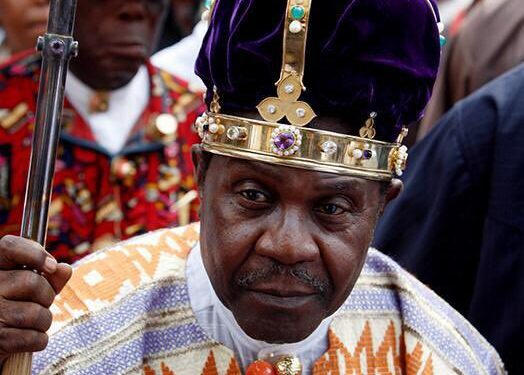Stakeholders in the Kalabari Kingdom in Rivers State, have called on the kings and chiefs in the kingdom to use the burial of the late Amanyanabo of Kalabari Kingdom, King Professor Theophilus Princewill, to unite the people of the area.
The stakeholders made the call during a public lecture as part of month-long activities lined up for the burial of the late king, which was held at the King Amachree Memorial Hall, Buguma City, in Asari-Toru local government area of the state.
Delivering the lecture titled: “Identity Constructs and Social Formations: Their Implications For The Unity In The Evolution Of Kalabari History,” Professor Waibinte Wariboko, stated that the competing identities of Bakana, Buguma and Abonnema communities, led to the disappearance of the Elem-Kalabari identity.
Wariboko said, “Before the out migration from the city state of Elem-Kalabari, the competing identities of Bakana, Buguma and Abonnema never existed.
So, there was no Bakana man, there was no Buguma man and there was no Abonnema man.
“Have we asked ourselves this question? At what point did we become self-identifying as an Abonnema man against being a Kalabari man? At what point, with my growing up experience, was it not more proper for me to say that I am a Kalabari man than an Abonnema man? At what point did I become an Abonnema man than a Kalabari man? These questions are for all of you here.
“How do you self-identify and what conditions make you self-identify in the way you do? If you answer this question, more of the problems we are talking about can be easily resolved.
“Admittedly, these competing identities called Abonnema, Bakana and Buguma, have contributed to the growth and development of Kalabari speaking group, generally speaking per say. But, equally admittedly, it has also exacerbated the frontline of divisibility among the Kalabari people because it jettisoned the Elem-Kalabari identity.”
In his remarks, the Regent of Kalabari Kingdom, Chief Charles Numbere, said there was the need for kings and chiefs in Kalabari to unite and foster the needed Kalabari agenda.
Numbere said: “The good news is that from the lecture delivered, we have a solution, it is not a panacea, but we have seen the way to go. One is that the old canoe house is dead. That is what I have found very difficult to accept. But today, I am convinced and you should be convinced that our main problem was that we were tied to the canoe house system.
“The canoe house system is dead and the onus is that Professor, in trying to go our ways, we are further divided. When you go to Abonnema, they are divided, if you do to Buguma, it is divided. So, if we don’t hurriedly come together again, we will find that every house will bring a builder.
“Our son, Professor Wariboko has told us, since the fish starts getting rotten from the head, the problem with those of us who are kings and those of us who are chiefs, you come here and try to impose your ideas on the people; it can’t work. You cannot do it now because there is freedom. I think it is incumbent on us the leaders of today to unite and foster a Kalabari agenda.”





